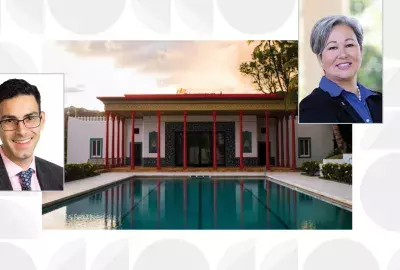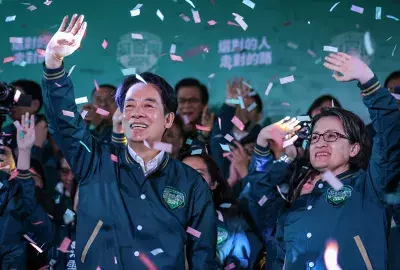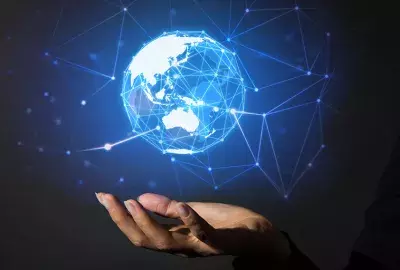Error message
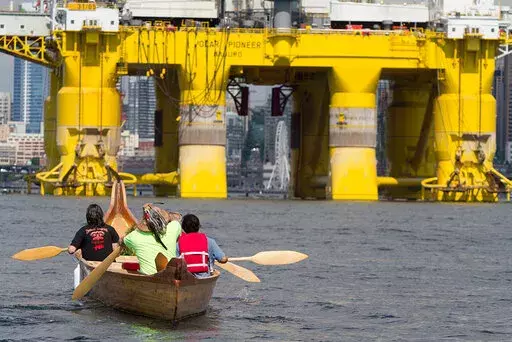
Speakers call for greater emphasis on traditional knowledge
Quick take:
- Panelists in a recent East-West Center online forum spoke about the need to apply knowledge amassed by Indigenous people over thousands of years to addressing climate change and other environmental challenges.
- Key stewardship values include fostering reciprocity with nature and sharing among people.
- Speakers called for Native voices to be at the center of the environmental conversation, not consigned to the margins.
HONOLULU (Sept. 7, 2021) -- Humankind can still mitigate the mounting impacts of climate change, but doing so will require knowledge acquired through millennia of observation and land stewardship, according to panelists in a recent East-West Center online forum on “Indigenous Voices, Indigenous Environmentalism.” The webinar, presented by #galswithlei Global and EWC Seminars Live, featured speakers from Hawaiʻi, Indonesia, the Philippines and North America.
“We are the original stewards of these lands, and it's up to us to help find sustainable solutions for the future of our global community,” said Heidi Todacheene, a Navajo Nation citizen and senior advisor in the US Interior Department’s Indian Affairs division, in opening keynote remarks.
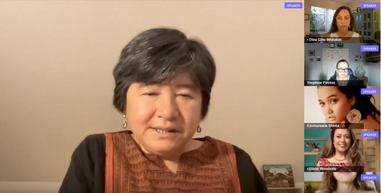
Applied traditional knowledge
Panelist Dina Gilio-Whitaker emphasized the role of traditional ecological knowledge, known as TEK, in addressing ecological crises. “TEK is not just a theoretical concept, or warm fuzzy words; it is applied knowledge,” said Gilio-Whitaker, who is a member of the Colville Confederated Tribes of Northeastern Washington and is on the faculty of the American Indian Studies program at California State University, San Marcos. “We sometimes call it Native science: It does emphasize the interdependence of all things, but also that these are knowledge systems based on long, long observation.”
Gilio-Whitaker detailed what TEK advocates refer to as the “four R’s”:
- Relationality, in which people see themselves in a kinship relationship to the earth and everything on it;
- Reciprocity between humans and their environment;
- Respect not only for other humans but for the land itself;
- Responsibility, which she said flows from recognizing the other three.
Nature as a common good
Joan Carling, who serves as co-convener of the Indigenous Peoples Major Group for Sustainable Development in Baguio City, Philippines, spoke about her culture’s relationship with the land. “We work collectively in the rice terraces, and when they produce food, we share it with others,” she said. “So we look at nature as a common good that we share and conserve. … With these kinds of practices, we can address the impacts of climate change.”
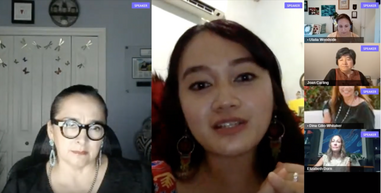
Ulalia Woodside, executive director of The Nature Conservancy of Hawaiʻi and Palmyra, said that since 2009 the organization has been collaborating on the South Kohala Coast of Hawaiʻi Island to apply traditional conservation techniques including kapu (restrictions) on the taking of various marine life. The effort, she said, has resulted in “a total biomass increase within the kapu area of more than 170 percent.”
Prioritizing Indigenous voices
The panelists agreed that it is not enough for outsiders to merely observe Indigenous practices and then attempt to reapply them in other contexts. Native voices need to be at the center of the conversation, they said, not consigned to the margins.
“Centering Indigenous voices and issues is essential to doing the work required toward environmental justice,” said panel moderator Stephine Poston, a member of Sandia Pueblo and alumna of EWC’s Changing Faces women’s leadership program. “Our ancestors were the strong protectors of mother earth, and that wisdom lives on.”
Asked how non-Indigenous people might help to shift the narrative, Emmanuela Shinta, a Dayak filmmaker from Borneo, said: “It’s been a long time that our voices have been silenced, while our stories have been told by people from the outside. Now that we are beginning to speak, become our echo: Spread our message. The Dayak struggle has not been covered in the mainstream media, so when we share our message through alternative methods, help us share it. Amplify it.”
Top Photo: Karen Ducey/Getty Images.
Speakers call for greater emphasis on traditional knowledge
Quick take:
- Panelists in a recent East-West Center online forum spoke about the need to apply knowledge amassed by Indigenous people over thousands of years to addressing climate change and other environmental challenges.
- Key stewardship values include fostering reciprocity with nature and sharing among people.
- Speakers called for Native voices to be at the center of the environmental conversation, not consigned to the margins.
HONOLULU (Sept. 7, 2021) -- Humankind can still mitigate the mounting impacts of climate change, but doing so will require knowledge acquired through millennia of observation and land stewardship, according to panelists in a recent East-West Center online forum on “Indigenous Voices, Indigenous Environmentalism.” The webinar, presented by #galswithlei Global and EWC Seminars Live, featured speakers from Hawaiʻi, Indonesia, the Philippines and North America.
“We are the original stewards of these lands, and it's up to us to help find sustainable solutions for the future of our global community,” said Heidi Todacheene, a Navajo Nation citizen and senior advisor in the US Interior Department’s Indian Affairs division, in opening keynote remarks.

Applied traditional knowledge
Panelist Dina Gilio-Whitaker emphasized the role of traditional ecological knowledge, known as TEK, in addressing ecological crises. “TEK is not just a theoretical concept, or warm fuzzy words; it is applied knowledge,” said Gilio-Whitaker, who is a member of the Colville Confederated Tribes of Northeastern Washington and is on the faculty of the American Indian Studies program at California State University, San Marcos. “We sometimes call it Native science: It does emphasize the interdependence of all things, but also that these are knowledge systems based on long, long observation.”
Gilio-Whitaker detailed what TEK advocates refer to as the “four R’s”:
- Relationality, in which people see themselves in a kinship relationship to the earth and everything on it;
- Reciprocity between humans and their environment;
- Respect not only for other humans but for the land itself;
- Responsibility, which she said flows from recognizing the other three.
Nature as a common good
Joan Carling, who serves as co-convener of the Indigenous Peoples Major Group for Sustainable Development in Baguio City, Philippines, spoke about her culture’s relationship with the land. “We work collectively in the rice terraces, and when they produce food, we share it with others,” she said. “So we look at nature as a common good that we share and conserve. … With these kinds of practices, we can address the impacts of climate change.”

Ulalia Woodside, executive director of The Nature Conservancy of Hawaiʻi and Palmyra, said that since 2009 the organization has been collaborating on the South Kohala Coast of Hawaiʻi Island to apply traditional conservation techniques including kapu (restrictions) on the taking of various marine life. The effort, she said, has resulted in “a total biomass increase within the kapu area of more than 170 percent.”
Prioritizing Indigenous voices
The panelists agreed that it is not enough for outsiders to merely observe Indigenous practices and then attempt to reapply them in other contexts. Native voices need to be at the center of the conversation, they said, not consigned to the margins.
“Centering Indigenous voices and issues is essential to doing the work required toward environmental justice,” said panel moderator Stephine Poston, a member of Sandia Pueblo and alumna of EWC’s Changing Faces women’s leadership program. “Our ancestors were the strong protectors of mother earth, and that wisdom lives on.”
Asked how non-Indigenous people might help to shift the narrative, Emmanuela Shinta, a Dayak filmmaker from Borneo, said: “It’s been a long time that our voices have been silenced, while our stories have been told by people from the outside. Now that we are beginning to speak, become our echo: Spread our message. The Dayak struggle has not been covered in the mainstream media, so when we share our message through alternative methods, help us share it. Amplify it.”
Top Photo: Karen Ducey/Getty Images.
East-West Wire
News, Commentary, and Analysis
The East-West Wire is a news, commentary, and analysis service provided by the East-West Center in Honolulu. Any part or all of the Wire content may be used by media with attribution to the East-West Center or the person quoted. To receive East-West Center Wire media releases via email, subscribe here.
For links to all East-West Center media programs, fellowships and services, see www.eastwestcenter.org/journalists.





